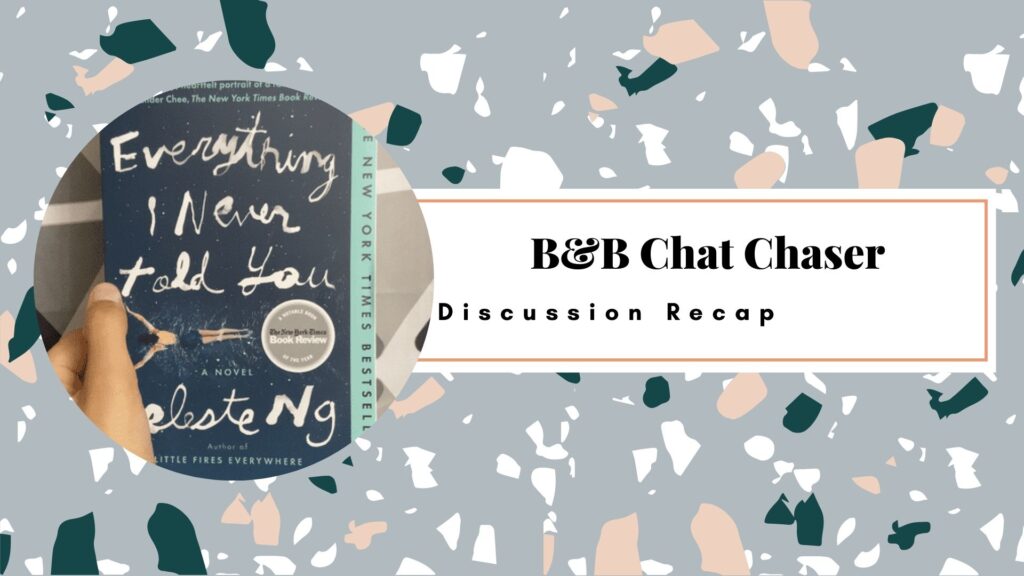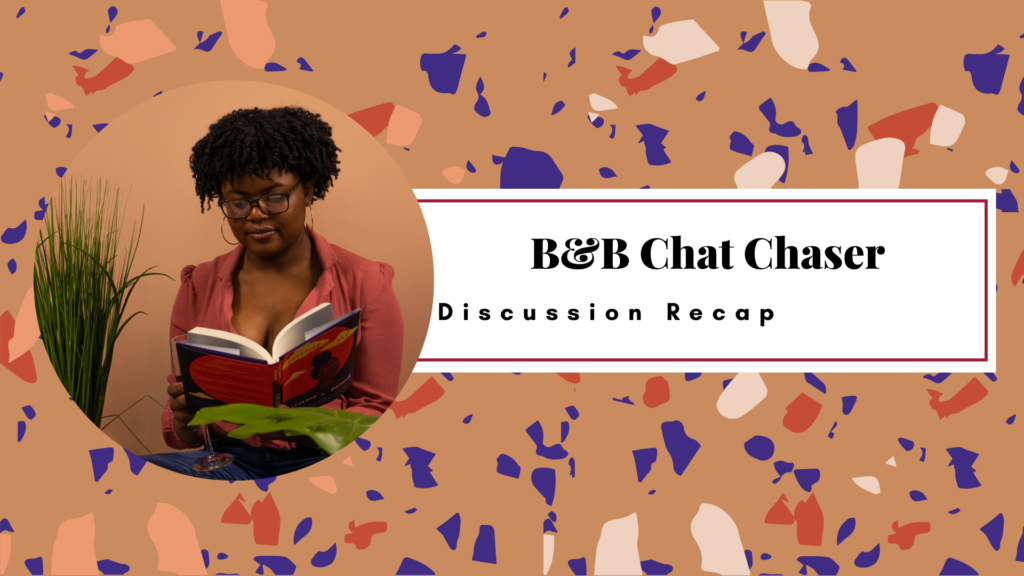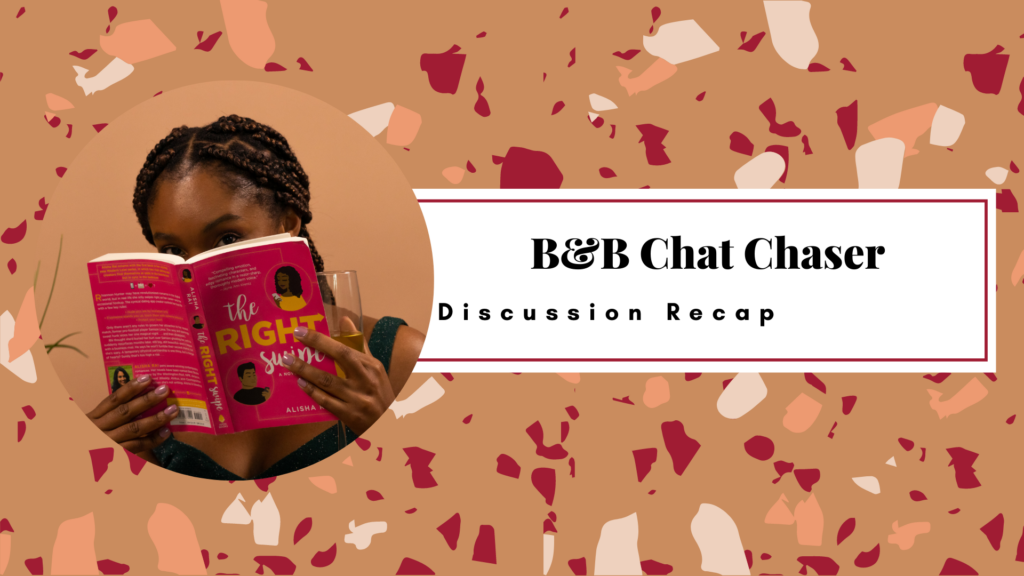This past Thursday, we had our first session for Brit Bennett’s novel, The Vanishing Half. This has been a highly anticipated first session, as the beautifully colorful cover graced all of Bookstagram for weeks. With some new members joining us this week (thanks, y’all), we dove right in! Spoilers ahead!
…
First things first, we were all a bit thrown off by those first few pages. We all knew this book was about colorism in some capacity but were not expecting to be slapped in the face with it by the end of the first page. The first character we’re introduced to calling a child “blueblack” right off the gate was a bit jarring and left us all thinking, “what kind of book is this?” But we settled into the writing and realized it’s all with purpose.
The writing is so subtle and carefully crafted. We as the reader are left to interpret things ourselves and make sense of what’s in front of us without her spelling anything out. We all really enjoyed this aspect of her writing. As well as how easy it is to read! Real page turner!!
…
Bennett creates Mallard, Louisiana: a town where everyone is Black, but no one fails the brown paper bag test by design of the town founder. This town is host to a community of light skinned Black people who are marrying lighter and whiter in order to increase their proximity to whiteness and perpetuate racist ideals of what Blackness truly means. Interestingly (and horrifically) enough, Bennett based Mallard on a real-life town her mom had told her about. It’s hard to believe such a thing could exist. But if you’re a Black person, you’ll know truly how sinister colorism can be.
Colorism is a plague in the Black community, plain and simple. It is a product of whit supremacy that seeped it’s way into the community and causes hierarchical thinking and interfighting. Sadly, lighter skinned people get treated with more respect and are awarded certain dignities that darker skinned people do not have. And it’s particularly cruel for dark skinned women.
…
The Vignes are described to have “creamy skin, hazel eyes, wavy hair” (which lead us to fancast Zendaya as one or both twins–we would love to see this story as a mini series). Many of us know Black people, who very much so identify as Black, who fit this description very well. So it’s interesting how we’re led to believe Stella is able to integrate into white society so flawlessly. We’re so excited to see how she does this. If whiteness is achievable through acting, what does whiteness really mean?
We spoke briefly about how we thought it was unfortunate that Desiree (who chooses to remain Black) gets treated so poorly in her life. After marrying a dark skinned man, she endures domestic abuse and eventually runs away with her child. It seems like this is exactly what her town warned her of, the dangers of mixing with dark skinned people. Although things are looking up for her back home, it feels almost unfair that she gets the worst outcome after not abandoning the race like her sister has. However, we expect that Stella too will face hardship living as a white woman. Which leads to one of Bennett’s themes: whiteness as a performance. It won’t be external like Desiree but a painfully slow internal struggle with her identity. We’re excited to see how it unfolds, especially after the cliff hanger where we assume Stella and Jude cross paths.
…
Overwhelmingly, we LOVE Jude and her story so far. Once we switch to her perspective, we gain even more insight into what it’s like to live in Mallard from the perspective of an outsider. Someone who doesn’t fit the ideal image of a Black person, let alone a Black girl/woman. Her interactions with Reese where he has to constantly reassure her about her beauty, as refreshing and cute as they were, hit a little close to home. Especially after we learn about her run-ins with a local Mallard boy who has sex with her in a dark barn because he cannot stand being with Jude in public.
“‘Stop that.’ … ‘Stop what?’ he said. ‘Looking at me like that.’ ‘But I like looking at you.’ ‘Why?’ ‘Because,’ he said, ‘you’re nice to look at.’ She scoffed, turning back to the window. … ‘I hate when you do that,’ he said. ‘What?’ ‘Act like I’m lying.’ he said.”
Jude and Reese — (Bennett, 133)
This part, as simple as it is, encapsulates the feeling Black girls have when they utterly doubt their own beauty due to misogynoir and, even more specifically, colorism. Many of us shared stories of this happening to us while others described how they are teaching young Black girls in their lives to love themselves and embrace their beauty. Not despite their skin, but because of it.
One thing that was pointed out was the lack of other explicitly stated dark skinned characters. Excluding her father, Jude is the only person we have characterization for that is dark skinned. For a novel that centers a lot of the dialogue around what skin shade someone is, we’re left wondering if Jude will be the only one. Was this purposeful, to mimic the way she feels alone in her skin tone throughout her life? Personally, it would be a disappointment if we never came across another dark skinned character. Looking forward to seeing if it happens!
…
We all found Bennett’s introduction of Reese well-written. Most of the trans stories written by cisgendered people include great tragedy or include a gruesome retelling of their transition. However, Reese’s story was written with respect trans people are not granted in storytelling, never misgendering him or spending a great deal of time pre-transition. We especially appreciated the scenes where Jude is learning about binding and how it affects Reese and their sex life. These scenes felt very natural and were written without making Jude tranbsphobic and having her unlearn for the sake of storytelling.
On that note, both Jude and Reese are loved fully and out loud. As of where we’re at right now, they are both given the love story they deserve. The love story dark skinned women are often not permitted. The love story trans people are often not permitted. No tragedy, no friends trying to convince them out of it, no violence (both marginalized groups face extreme rates of violence from their partners). A story where they truly get to be two young adults in love who grow and evolve together. I loved this aspect the most about this novel and hope it continues without great loss for either of them.
…
All in all, love the book so far. Can’t wait for the introduction of Stella and how the two worlds collide for the climax of the story. Hats off to Bennett for doing her research. And thank you for reading!
Christine and the Sapphire Team






